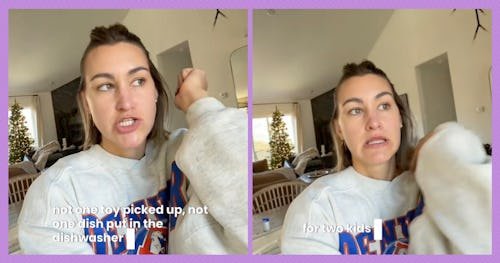

Earlier this month, the Department of Education reached a consensus on how to implement the Big Beautiful Bill’s student loan-related edict: “to place commonsense limits and guardrails on future student loan borrowing,” according to a press release from the agency. The bill was signed into law by President Donald Trump this July, setting new lifetime borrowing caps of $100,000 for graduate students and $200,000 for professional students. This month’s committee finally established what degrees count as “professional,” and notably, no nursing degrees made the cut.
The new rules for student loan borrowing take effect July 1, 2026. From that day forward, a person’s education will fall into one of two categories: a graduate school program, or a professional school program. Graduate school attendees can borrow up to $20,500 per year, or up to $100,000 in total; professional school students can borrow up to $50,000 per year, or $200,000 in total.
In order to be considered a professional degree, the degree must be of a doctoral level, require six years of higher education with at least two years at the post-baccalaureate level, and require professional licensure, according to New America. According to the American Association of Universities, despite stakeholders pushing for more additions to the professional degree list, the 11 programs considered to be professional ones are:
- Pharmacy
- Dentistry
- Medicine
- Law
- Optometry
- Podiatry
- Theology
- Veterinary medicine
- Osteopathic medicine
- Chiropractic
- Clinical psychology (the only new addition to the list)
In a country with an ongoing nursing shortage, experts fear leaving nursing degrees off of this list will only make things worse. “At a time when healthcare in our country faces a historic nurse shortage and rising demands, limiting nurses’ access to funding for graduate education threatens the very foundation of patient care,” said Jennifer Mensik Kennedy, president of the American Nurses Association, in a statement from the American Nurses Association. “In many communities across the country, particularly in rural and underserved areas, advanced practice registered nurses ensure access to essential, high-quality care that would otherwise be unavailable. We urge the Department of Education to recognize nursing as the essential profession it is and ensure access to loan programs that make advanced nursing education possible.”
Nurses like nurse practitioner Shaquira Ashley took to social media expressing the same fears, explaining that leaving advanced nursing degrees off the professional list is not going to drive nurses back to bedside care, if that’s the goal. It will drive them out of the profession altogether and cripple America’s healthcare system.
Her comments were flooded with nurses and nursing students who feel the same. “One minute we’re essential workers literally carrying the country on our backs! The next we’re on our own. How quickly these people forget,” wrote one. “As a nurse, living check to check, working endless overtime hours and still making less than 100k a year, I wanted to go back to school. But for THIS? I’ll just go into a different field,” commented another
Other medical professionals chimed in, too:
- “Me in PT school finding out they included chiropractic but not PT and OT even tho both are clinical doctorates with licensing exams.”
- “I’m a physical therapist, and we’re not considered professional degrees anymore either. Why am I $300,000 in debt for a doctorate degree and professional license then?! I’d like a refund/my money back for my wasted time then.”
- “I see nobody talking about Social workers when we have MASTERS degrees and licenses. The fact we aren’t considered professional makes no sense.”
- “The disrespect for teachers is LOUD.”
- “AUD (doctor of audiology) is also missing — a doctorate is required for licensure.”
- “Soooooo we’re not going to have any new mental health professionals. Most clinicians are masters level.”
Countless commenters also pointed out that the Department’s professional degree list is made up of male-dominated fields, while many of the other degrees that meet the criteria to be professional ones but were excluded are dominated by women.
- “If nursing was a male-dominated field, this wouldn’t be a conversation.”
- “Because 86-89% of nurses in the United States are women. The same statistic applies for NPs.”
- “It’s a full-on attack on educated women. Chiropractic practice and theology degrees, but not nursing, is a large slap in the face to the biggest care force in the national healthcare system.”
- “They wouldn’t have done this to a predominantly male-dominated field.”
Now that loan borrowing language has been agreed upon by the Dept. of Ed. committee, members must put forth a Notice of Proposed Rulemaking (NPRM) — that’s expected to come out sometime early next year. When it does, the Department must hear and consider public comments for a 30-day period before the final ruling.


